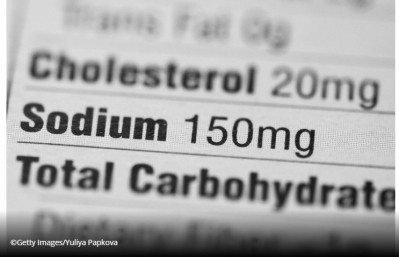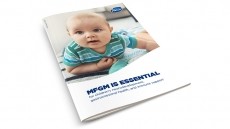Iodine supplements needed to boost low levels in women post-pregnancy: Study

Researchers from Norway’s Institute of Marine Research found iodine status at its lowest in women six weeks post-partum, with milk and iodine supplements proving effective at raising iodine levels.
Neither the mothers' iodine status, eating habits, or exclusion of milk and dairy products were linked with the toddler’s iodine status 18 months postpartum.
“We saw that it took a long time, about 18 months, before they had the same iodine levels as they had in pregnancy, says Inger Aakre, researcher at the Institute of Marine Research based in Norway.
“During pregnancy, the need for iodine increases, but it is rare that the intake of women increases. The iodine status, which was perhaps too bad from before, will then be even lower,” says Aakre. “The children had a good iodine status when they were 18 months old.”
The Iodine Global Network has identified iodine deficiency as prevalent in Europe, especially among pregnant women.
Recent studies also link suboptimal maternal iodine intake during pregnancy with impaired child development, especially in the area of language skills.
Infants are vulnerable to iodine deficiency due to their small thyroidal iodine stores, high thyroxine turnover and high iodine requirements per body weight, compared with other age groups.
In pregnancy, iodine requirements are elevated due to increased thyroid hormone synthesis, transfer of iodine to the foetus, and increased glomerular filtration, resulting in increased urinary losses.
Iodine requirements are also increased during lactation, as iodine is secreted into breast milk and serves as a crucial iodine source to the breastfeeding infant.
NNR and WHO recommendations
The Nordic Nutrition Recommendations (NNR) recommend an iodine intake of 175 micrograms (μg/day), whereas the World Health Organization (WHO) recommend 250 μg/day for pregnant women.
Along with colleagues from the Oslo Metropolitan University and University of Oslo, the iodine status was measured by urinary iodine concentration (UIC) during pregnancy (sample size (n) = 1,004),
UIC was also measured in women, who were six weeks post-partum (n = 915), six months post-partum (n = 849), 12 months post-partum (n = 733) and 18 months post-partum (n = 714).
Toddlers' UIC was also assessed at 18 months of age (n = 416) as dietary data and breastfeeding practices were collected during pregnancy.
The team found iodine status was insufficient in both pregnant and post-partum women with the UIC at its lowest 6 weeks postpartum gradually improving over time.
Intake of milk and use of iodine-containing supplements increased the odds of having a UIC above 100 (micrograms per litre) μg/L.
“Women who exclude milk and dairy products from their diets and/or do not use iodine-containing supplements may be at risk of iodine deficiency,” the researchers add.
“The women possibly also have an increased risk of thyroid dysfunction and for conceiving children with nonoptimal developmental status.”
Aakre says of the study, “The fact that we have so many repetitive measurements on the same person means that we can say with certainty that they have too little iodine. It is not just one random sample.
“Those who had the most iodine were those who had taken iodine supplements. They had an average of about 20 micrograms more iodine in their urine than those who did not take this.
“There was quite a big difference in iodine status between the women who had taken iodine supplements, and those who had not taken it.”
Supplements raise levels
Discussing the results, the team ‘somewhat expected’ iodine status to be lowest at 6 weeks post-partum, due to increased iodine loss through lactation.
Furthermore, the iodine status decreased with advancing gestation, as the renal loss and foetal demands of iodine increased.
The team also highlighted the benefits of taking iodine-containing supplements, milk and dairy products twice a day compared with less than once a day suggesting the practice ‘significantly increased the odds of having UIC above 100 μg/L.’
Supplements and dairy products have been found to be the major iodine sources in pregnant and lactating women in Norway.
Similarly, in a study where pregnant women from three large cohorts in Europe were included, intake of milk and dairy products was the main dietary determinant of iodine status.
Source: Matern Child Nutr.
Published online: doi.org/10.1111/mcn.13050
“Iodine status during pregnancy and at 6 weeks, 6, 12 and 18 months post-partum.”
Authors: Inger Aakre et al.















